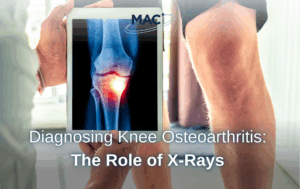This week is OCD Awareness Week, launched by the International OCD Foundation, which aims to raise awareness of OCD and how it affects people living with it. One of the many symptoms associated with obsessive compulsive disorder (OCD) is experiencing intrusive thoughts which can have a severe impact on someone’s life.
The main aspects of OCD: obsessions and compulsions’
Compulsions are what people typically associate with OCD and they can come in various forms such as physical actions such as washing your hands, arranging objects in a certain way, obsessively cleaning and repeatedly checking things, and mental rituals such as repeating a word or phrase in your head or counting to a certain number. These compulsions can take up a lot of time and energy, are excessive, and the relief does not always last very long.
Obsessions are the intrusive thoughts: unwelcome, persistent, and often unpleasant thoughts, images and/or urges that a person can’t control. These unwanted and recurring thoughts can make someone feel anxious, disgusted, or uneasy. People living with OCD may try to ignore these intrusive thoughts or perform rituals or compulsive behaviours to provide temporary relief.
Some common types of obsessive or intrusive thoughts could be their relationships with others, for example, repetitive thoughts about their romantic partners or their friends and family. They might also have violent thoughts or images come into their mind, for example thinking that they are going to harm someone or that they have already harmed someone without realising. There can also be intrusive thoughts associated with contamination related to dirt and germs, as well as mental contamination – feelings of dirtiness that are caused by someone who has harmed you in some way.
How is MAC Clinical Research trying to make a difference to people with OCD?
OCD can have a very debilitating effect on a person’s life, and we want to help people regain control: our OCD clinical trial is open for people struggling with OCD, who would like to see if a new potential treatment could help.
Recent studies have suggested that the study drug in this clinical trial will inhibit signalling pathways in the brain (known as the glutamine pathways) that are important in obsessive or compulsive behaviours, and it is thought to target a different signalling pathway in the brain to current OCD treatments.
The study will run at MAC clinics in Lancashire, Merseyside, South Staffordshire, South Yorkshire, Teesside, and West Yorkshire (plus Greater Manchester from November 2022).
To be eligible, participants must:
- be between 18 and 65 years-old
- have had OCD, or OCD symptoms for at least 1 year
- feel their current OCD treatment is not fully working.
Eligible participants will receive a comprehensive health check and the highest standards of care from MAC’s medical teams, as well as £490 upon completion of the trial and, if the treatment works, participants may be able to continue taking it for a period of time in an extension study.
To find out more about this clinical trial and how you can be one of 700 participants taking part in this study across 100 clinics worldwide, visit our OCD page.






